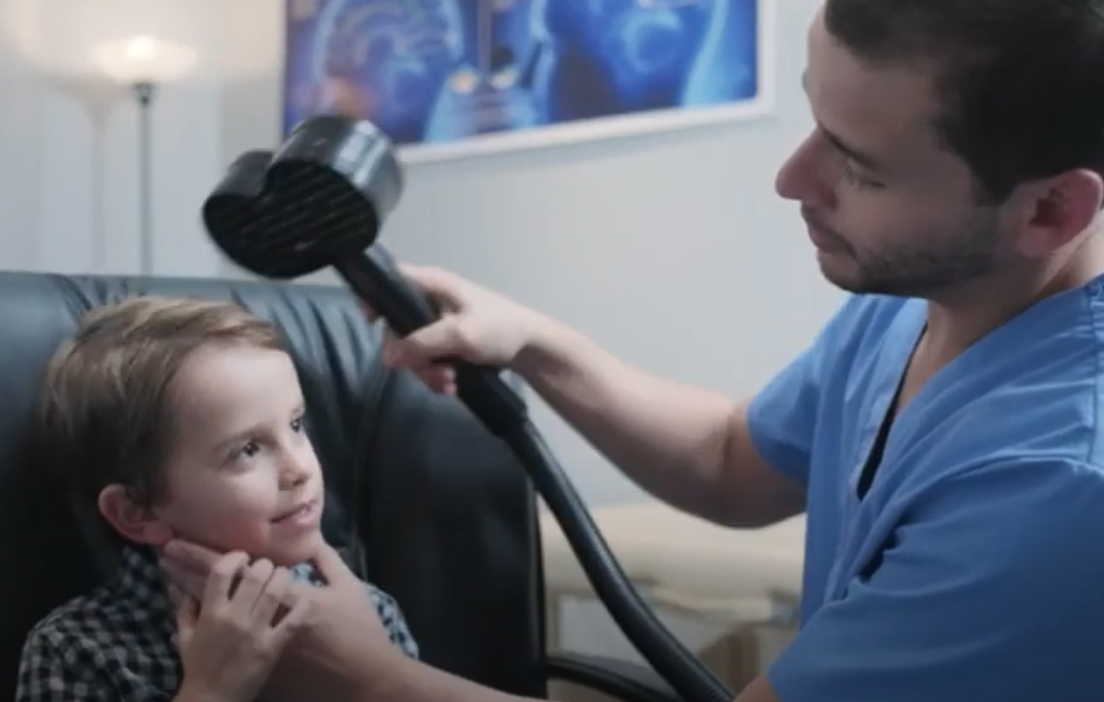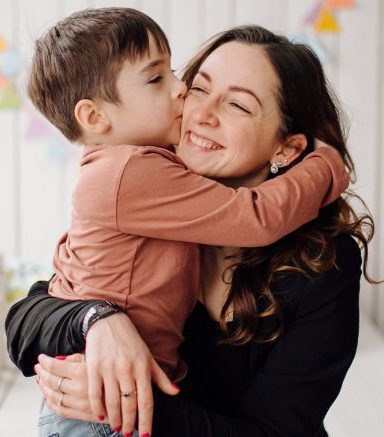Sleep and Autism: How Can You Help Your Child Get More Restful Sleep?

If this is the case for your child, you’re not alone. One of the largest studies on the subject showed that an estimated 80% of children with ASD have sleep problems. Additionally, autistic children are twice as likely to have sleep issues as neurotypical children.
This lost sleep doesn’t just mean restless nights and tired mornings: a 2017 study showed that reduced sleep could make ASD symptoms more severe.
And if you’ve tried everything to help your child sleep better but aren’t seeing the results you hoped for, MeRT® can help.
One of the FIRST things patients report after MeRT treatment is the ability to sleep better. And quality, restful sleep can be the catalyst for your child’s ability to function more independently in life.
Why is Sleep so Important for a Child’s Brain Development?
The American Academy of Pediatrics issued the following recommendations for how much sleep your child should get each night:
- 4 to 12 months: 12 to 16 hours per day (including naps)
- 1 to 2 years: 11 to 14 hours per day (including naps)
- 3 to 5 years: 10 to 13 hours per day
- 6 to 12 years: 9 to 12 hours per day
- 13 to 18 years: 8 to 10 hours per day
The brain needs this much sleep to optimize brain function. Sleep is also when the body repairs and regenerates itself. And it’s vital that the body goes through all the stages of the sleep cycle multiple times during the night — particularly REM sleep and deep sleep.
REM sleep is essential for cognitive functions like memory, learning, and creativity. And deep sleep is when the body releases human growth hormone, responsible for cell growth, reproduction, and regeneration.

- Mood changes and irritability
- Drowsiness during the daytime
- Hyperactivity and aggression
- Inability to pay attention
- Organization and planning difficulties
- Difficulties with judgment
- Memory issues — difficulties with new learning and retaining learned skills (memory)
And as you’ve read, these effects can be far more pronounced for children on the spectrum.
Call Our New Patient Coordinator to Learn More
(619) 789-5613
Or fill in the form below, and she will contact you.
Why do Many Autistic Children Struggle with Sleep?
So many things can contribute to sleep problems in autistic children. These can include:
- Having trouble settling or winding down when it’s time for bed
- Social cueing issues — a child doesn’t make the connection between others in the household going to sleep and their own need to sleep
- Medical issues like anxiety
- Irregular secretion of the sleep hormone melatonin, which can cause malfunctions in the circadian rhythm
- Neurological conditions such as epilepsy
- Sensory sensitivities, such as with light from digital devices or sensitivity to certain sounds
- Side effects from medications
- Gastrointestinal problems
- Problems with breathing during sleep, which can lead to sleep apnea
These sleep issues can worsen certain features of ASD, such as repetitive behaviors and poor social skills. One study also found that children with autism who have trouble sleeping are more hyperactive and easily distracted than those who sleep well.
Additionally, most neurotypical people spend about 23 percent of their sleep time in REM sleep, while those on the spectrum spend about 15 percent of their time in REM sleep. This can mean sleep is far less restorative for them.
How Can MeRT Help Children with Autism Sleep Better?

That’s where MeRT (Magnetic Resonance Therapy) can be so effective. We’ve seen some remarkable results in improved sleep patterns of children we’ve treated with MeRT.
MeRT is an emerging technology that aims to improve brain function and communication. The TMS equipment used is FDA-cleared to treat Major Depressive Disorder and OCD and is used off-label to treat a wide variety of conditions, including autism.
Non-invasive and drug-free MeRT works to optimize brain communication to be more organized and in sync. This allows a child with ASD to have better communication skills, social skills, and more independence.
And one of the first things parents report when a child receives MeRT treatment is a dramatic improvement in their sleep schedule:
Mikey suffered from going to bed at 1:40, 2:40, 3:40… it was rough on us parents because we have to work — and I had to stay up with my son. On a good night, we would go to bed at 11. While we have been here receiving treatment, Mikey has not gone to bed any later than 9:00, and the earliest he’s gone to bed is 8:00 sharp. And he sleeps through the whole night and wakes up on his own around 7:30 or 8:30. He wakes up energized, not grumpy, and he’s ready for the day.
“Don’t be discouraged by anybody telling you there’s nothing you can do for your child. There’s a lot more you can do.” – Adriana, a parent whose child received MeRT treatment for autism
And MeRT is unique because it can help improve results from all other therapies — such as ABA and school — as the brain pathways open up. Of course, as each child’s brain is unique, results can vary from patient to patient.
To learn more details about MeRT treatment and what it can do for your child, please visit our Autism page. You can also visit our Autism Videos page to see some incredible successes from MeRT treatment for autism.
Find Out How MeRT Can Improve Sleep for your Child with Autism — and so Much More!
Our team here at the Brain Treatment Center San Diego is committed to helping your child achieve their full potential.
We have treated hundreds of patients with MeRT and have seen some incredible results. And we’re dedicated to treating your child with the utmost compassion and care.
However, we know that this isn’t a simple decision and that you may have many questions about whether MeRT is the right treatment for your child.
In order to help you make the best decision, your first step is a simple, no-obligation call with our New Patient Coordinator.
Our New Patient Coordinator understands your pain and will listen to your concerns. Plus, she can answer every one of your questions and can also explain the process and protocols, costs, possible insurance benefits, and any other details you want to know.
It’s important to note that there are no obligations, and she will take the time you need to know whether you should take the next steps.
Call Our New Patient Coordinator to Learn More
(619) 789-5613
Or fill in the form below, and she will contact you.
Contact Us
Please fill in the information below.

